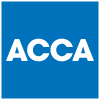2021 will see the UK host COP26, where parties from around the world will gather together to find ways to work towards the goal of a low-carbon future.
The UK government itself must accelerate the reduction of carbon emissions in order to hit the country’s climate target by 2050. The desire to reach these goals has been further fuelled by the coronavirus (COVID-19) pandemic, with many people urging governments to ‘build back better’ and businesses assessing their own roles in the ‘Green Industrial Revolution’.
For this to happen, the government will need to deliver fundamental change to help the UK meet its net-zero target while aiding an economic recovery. Chancellor Rishi Sunak has already laid out some steps towards creating a greener economy. Here, we take a look at what could be done to drive these ambitions further.
Committing to green growth
In the 2021 Budget, the Chancellor made a number of commitments to green growth. This included the first ever UK Infrastructure Bank, which will have an initial capitalisation of £12 billion and will invest in green public and private projects.
The Chancellor also unveiled a retail savings product to give UK savers the chance to support green projects to sit alongside a Sovereign Green Bond that was announced last year. Mr Sunak also committed investment to offshore wind, with funding for new port infrastructure to build the next generation of projects in Teesside and Humberside.
Holistic plan
The Confederation of British Industry (CBI) has urged the government to go further in order to encourage the green industrial revolution. It says that greening the tax system must go beyond simply looking at different environmental taxes – transport, pollution and energy taxes – as one-offs. Instead it should deliver fundamental change with a holistic, coherent tax plan to help the UK meet its net-zero target.
Bumps in the road
However, the UK government has also come in for criticism for cutting electric vehicle grants by £500 while continuing to freeze fuel duties of petrol and diesel vehicles. The Department for Transport will now provide grants of up to £2,500 for electric vehicles on cars priced under £35,000. This is a reduction from the previous £3,000 available for vehicles costing up to £50,000.
The government says this means the funding will last longer and be available to more drivers. However, critics say the cut in grants sends the wrong message, while the fuel duty freeze highlights the challenge facing the government as it seeks to assist the post-COVID recovery whilst also building back better.
How we can help
We aren’t just your average accountants. We offer a wide range of business advisory services to help you make the right decisions for your business to grow and improve. With over 40 years experience our team is dedicated to really understanding your business.
We believe by staying up to date with not only current but changing legislation and industry news we are better placed to help our clients and their businesses succeed.
If you would like to know how Loucas can assist you please do not hesitate to contact us.




